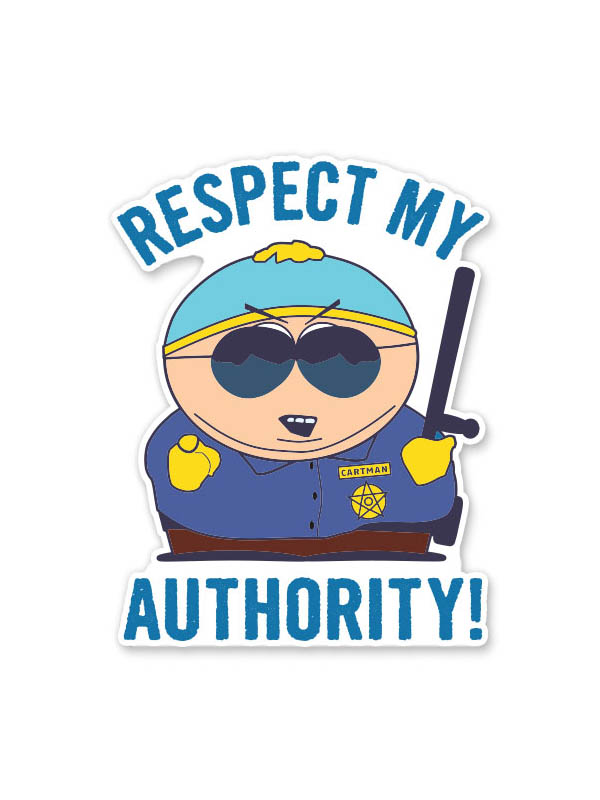Respect My Authority: Understanding The Importance Of Authority In Leadership
In today's fast-paced world, the phrase "respect my authority" has become increasingly relevant, especially in leadership roles. Authority is not merely a title; it's an essential component that influences how leaders are perceived and followed. Understanding the dynamics of authority can help improve workplace environments and foster better relationships between leaders and their teams. In this article, we will explore the concept of authority, its implications in various contexts, and practical tips for leaders to earn and maintain respect.
Authority can be defined as the legitimate power that an individual holds, allowing them to make decisions, give orders, and enforce compliance. However, authority should not be confused with power, which can be exercised in authoritarian or coercive ways. In contrast, true authority is built on trust, expertise, and the ability to inspire others. As we delve deeper into this topic, we will discuss various aspects of authority, including its origins, types, and how it can be effectively wielded in leadership roles.
This article aims to provide valuable insights into the multifaceted nature of authority, emphasizing its significance in leadership. By understanding how to command respect and foster collaboration, leaders can create a more productive and harmonious work environment. Let's embark on this journey to uncover the nuances of authority and its impact on effective leadership.
- Doug Townson Life Career And Legacy
- Exploring Black Bough Swim The Ultimate Guide To Swimwear Fashion
Table of Contents
- What is Authority?
- Types of Authority
- The Role of Expertise in Authority
- Building Trust and Credibility
- Effective Communication Skills for Leaders
- Authority in Different Contexts
- Challenges of Authority in Leadership
- Conclusion
What is Authority?
Authority is a complex concept that can be defined in several ways. At its core, authority refers to the power or right to give orders, make decisions, and enforce obedience. It is often associated with leadership roles but can also exist in various contexts, including social, legal, and organizational settings.
Key characteristics of authority include:
- Legitimacy: Authority is often derived from a recognized position or role within an organization or society.
- Influence: Authority allows individuals to influence others' actions and decisions.
- Responsibility: With authority comes the responsibility to make informed decisions and act in the best interest of the group.
Types of Authority
Understanding the different types of authority can help leaders effectively navigate their roles. The following are the primary types of authority:
- French Manicure Nails The Timeless Elegance Of Nail Art
- Exciting Developments In The Acotar Casting What Fans Can Expect
1. Formal Authority
Formal authority is derived from an individual's position within an organization. This type of authority is often outlined in organizational charts and job descriptions. Examples include managers, team leaders, and executives.
2. Informal Authority
Informal authority arises from personal qualities, expertise, or relationships rather than a formal title. Individuals with informal authority often have significant influence over their peers due to their knowledge, experience, or social connections.
3. Expert Authority
Expert authority is based on an individual's specialized knowledge or skills. Leaders who possess expert authority are often sought after for their insights and guidance in their respective fields.
4. Charismatic Authority
Charismatic authority stems from an individual's personal charm, charisma, and ability to inspire others. Leaders with charismatic authority can motivate their followers through their vision and passion.
The Role of Expertise in Authority
Expertise plays a crucial role in establishing authority. Leaders who demonstrate a high level of knowledge and skill in their area of work are more likely to be respected and followed by their teams. Some ways to enhance expertise include:
- Continuous Learning: Stay updated on industry trends and advancements through courses, workshops, and conferences.
- Networking: Connect with other professionals to share knowledge and gain insights.
- Seeking Feedback: Regularly seek feedback from peers and subordinates to identify areas for improvement.
Building Trust and Credibility
Trust is the foundation of any successful leader-follower relationship. To build trust and credibility, leaders should:
- Be Transparent: Communicate openly about decisions, challenges, and expectations.
- Show Consistency: Maintain consistency in actions and decisions to reinforce reliability.
- Listen Actively: Show genuine interest in team members' opinions and concerns.
Effective Communication Skills for Leaders
Strong communication skills are essential for leaders to convey their authority effectively. Key communication strategies include:
- Clear Messaging: Use straightforward language and avoid jargon to ensure understanding.
- Nonverbal Communication: Be mindful of body language and facial expressions, as these can impact perceptions of authority.
- Encourage Dialogue: Foster an environment where team members feel comfortable sharing their thoughts and ideas.
Authority in Different Contexts
Authority can manifest differently across various contexts, including:
1. Workplace Authority
In the workplace, authority is often hierarchical, with clear lines of responsibility and accountability. Effective leaders leverage their authority to guide teams toward achieving organizational goals.
2. Educational Authority
In educational settings, authority is typically held by teachers and administrators. They are responsible for creating a positive learning environment and fostering student development.
3. Social Authority
Social authority can emerge in community settings, where individuals lead by example, influence social norms, and advocate for change.
Challenges of Authority in Leadership
While authority can be a powerful tool, it also presents challenges. Some common challenges include:
- Resistance to Authority: Team members may resist authority figures due to past negative experiences or perceived unfairness.
- Misuse of Authority: Leaders who abuse their authority can create a toxic work environment, leading to low morale and high turnover rates.
- Balancing Authority and Collaboration: Striking a balance between exercising authority and fostering collaboration can be challenging for leaders.
Conclusion
In conclusion, the phrase "respect my authority" is a call for recognition and acknowledgment of a leader's position and influence. By understanding the nuances of authority, including its types, the role of expertise, and the importance of trust, leaders can foster a more respectful and productive environment. It is essential for leaders to communicate effectively, build credibility, and adapt their approach to the context in which they operate.
We encourage readers to reflect on their experiences with authority in leadership roles and consider how they can improve their approach to earning respect. Share your thoughts in the comments below, and feel free to explore our other articles for more insights on leadership and personal development.
Thank you for reading, and we hope to see you again soon!



Detail Author:
- Name : Ines Wintheiser MD
- Username : jude.gutmann
- Email : dgreenholt@walker.com
- Birthdate : 1994-08-25
- Address : 526 Janie Garden West Thaliamouth, NV 92494
- Phone : (620) 953-6034
- Company : Kris Group
- Job : Electric Meter Installer
- Bio : Distinctio harum suscipit facere facilis ducimus omnis. Autem asperiores possimus corrupti unde earum rerum. Praesentium nostrum quas laudantium eveniet officia. Quo consequatur nihil voluptate sunt.
Socials
facebook:
- url : https://facebook.com/davin_muller
- username : davin_muller
- bio : Voluptatibus optio laborum ab est. Eaque dolores incidunt et dolores.
- followers : 3472
- following : 1327
linkedin:
- url : https://linkedin.com/in/davinmuller
- username : davinmuller
- bio : Hic quia modi ea aut.
- followers : 6544
- following : 786
twitter:
- url : https://twitter.com/mullerd
- username : mullerd
- bio : Maxime consequatur ea molestiae consequuntur. Repellendus temporibus explicabo sunt aut dolores ducimus dolores non. Et fugiat sed voluptatem harum.
- followers : 3038
- following : 276
instagram:
- url : https://instagram.com/davin6235
- username : davin6235
- bio : Non beatae et vel quasi qui ut et. Tempore vel et excepturi.
- followers : 724
- following : 1138
tiktok:
- url : https://tiktok.com/@davin_muller
- username : davin_muller
- bio : Voluptas qui omnis dolores commodi accusantium rerum quae atque.
- followers : 4052
- following : 1234